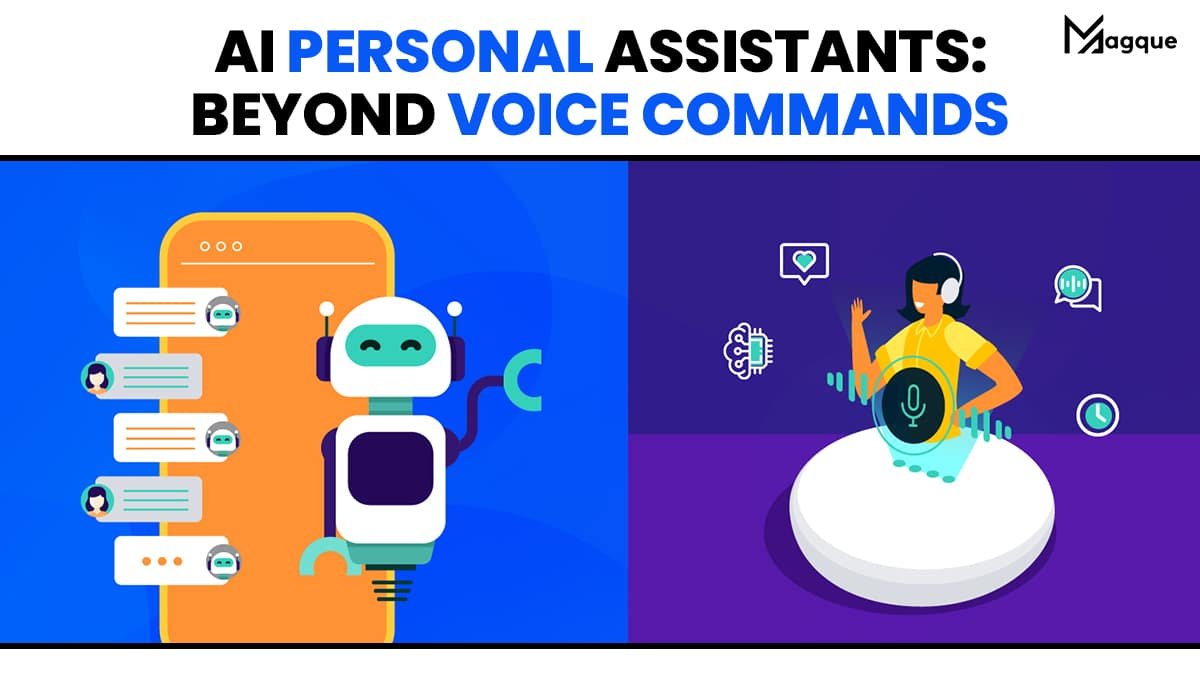In the digital age, the role of AI personal assistants has transcended mere voice commands, evolving into multifaceted tools that enhance productivity and streamline daily tasks. Gone are the days when these assistants were limited to answering simple queries or setting reminders. Today, they have become indispensable allies in navigating the complexities of modern life.
The Evolution of AI Assistants
Initially, AI assistants like Siri, Alexa, and Google Assistant primarily focused on voice interaction. Users could ask questions, play music, or control smart home devices with simple voice commands. However, as technology advanced, so did these assistants’ capabilities. Now, they can understand natural language, anticipate user needs, and precisely perform complex tasks.
Beyond Voice Recognition: The Power of AI
While voice recognition remains a core feature, AI assistants excel in other areas. From scheduling appointments and managing emails to providing personalized recommendations, these virtual aides can handle various tasks autonomously. They leverage machine learning algorithms to analyze user behavior and preferences, delivering tailored experiences that enhance efficiency and convenience.
Enhancing Productivity
One of the key benefits of AI assistants is their ability to boost productivity. They automate repetitive tasks and organize information to free up valuable time for users to focus on more meaningful endeavors. Whether drafting emails, compiling research, or organizing schedules, these assistants act as efficient collaborators, helping individuals stay organized and on track.
Personalization and Contextual Understanding
Their knack for personalization and contextual understanding sets modern AI assistants apart. They can learn from past interactions, adapt to user preferences, and provide relevant real-time information. Whether suggesting restaurants based on dietary restrictions or recommending movies based on past viewing history, these assistants tailor their responses to suit individual needs.
The Future of AI Personal Assistants
As AI technology advances, personal assistants’ capabilities will only grow more sophisticated. We expect greater integration with other devices and services, seamless multitasking abilities, and enhanced natural language processing. From healthcare and education to finance and entertainment, AI assistants will play a pivotal role in shaping the future of various industries.
In Conclusion
AI personal assistants have come a long way from their humble beginnings as voice-controlled gadgets. Today, they are indispensable tools for enhancing productivity, personalizing experiences, and simplifying everyday tasks. With continuous innovation and refinement, the future holds limitless possibilities for these virtual aides, promising a world where assistance is always a voice command away. By harnessing the power of AI assistants, individuals can navigate the complexities of modern life with ease, efficiency, and confidence.
For more insights on AI technology and its impact on daily life, stay tuned to Magque for the latest updates and expert analysis.
FAQs
Q1. What tasks can AI personal assistants perform beyond voice commands?
AI personal assistants have evolved to handle various tasks beyond voice commands. They can schedule appointments, manage emails, provide personalized recommendations, control smart home devices, and even assist with research and organization.
Q2. How do AI assistants personalize user experiences?
AI assistants leverage machine learning algorithms to analyze user behavior, preferences, and past interactions. Using this data, they can provide tailored recommendations, anticipate user needs, and deliver personalized responses in real time.
Q3. Can AI assistants understand natural language and context?
Yes, modern AI assistants are capable of understanding natural language and context. They can decipher complex queries, recognize intent, and provide relevant information based on the conversation’s context, making interactions more intuitive and seamless.
Q4. What is the future of AI personal assistants?
The future of AI personal assistants holds limitless possibilities. We can expect greater integration with other devices and services, enhanced multitasking abilities, and advancements in natural language processing. AI assistants will continue evolving, becoming indispensable tools in various industries and daily life.
Q5. How can AI personal assistants enhance productivity?
AI personal assistants boost productivity by automating repetitive tasks, organizing information, and freeing up time for users to focus on more meaningful endeavors. Whether drafting emails, managing schedules, or providing timely reminders, these assistants act as efficient collaborators, streamlining workflows and maximizing efficiency.
Read Also This:- How AI is Shaping Content Creation













